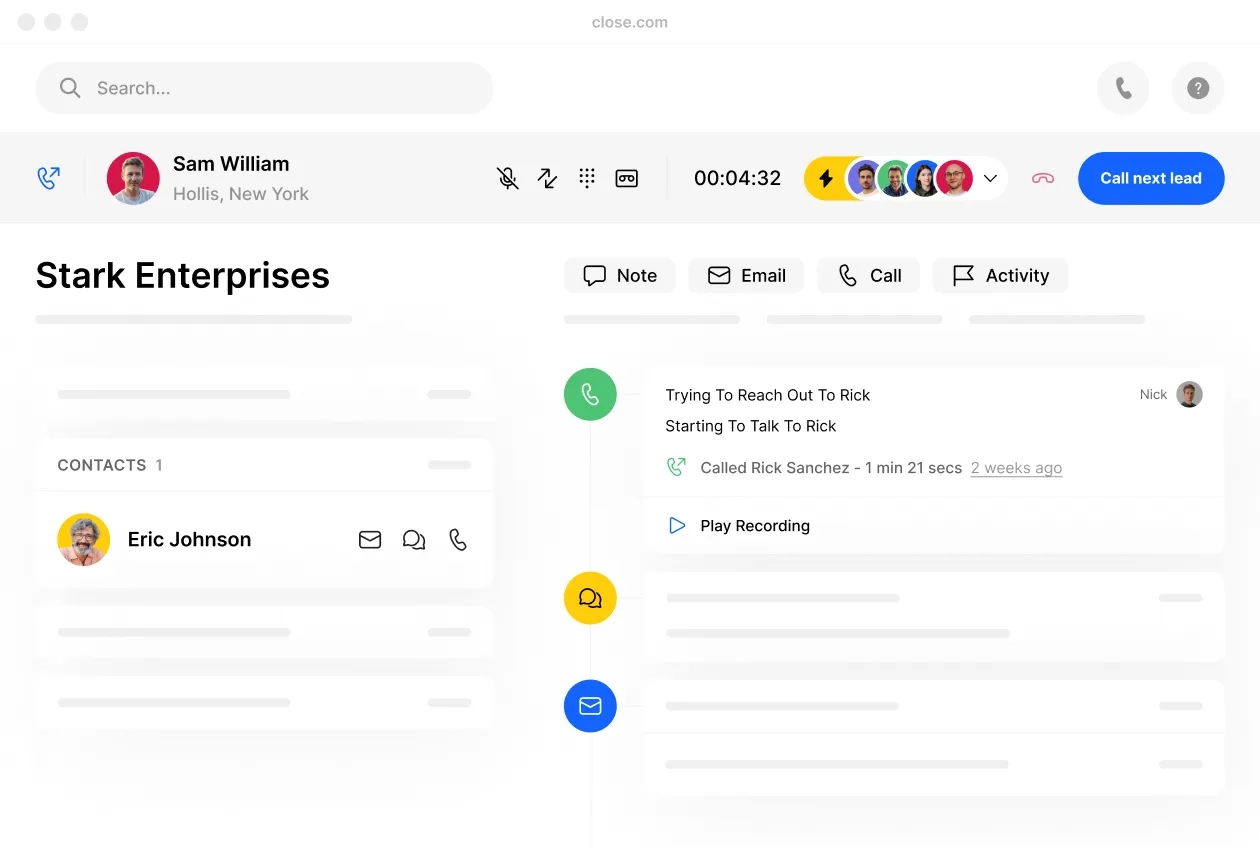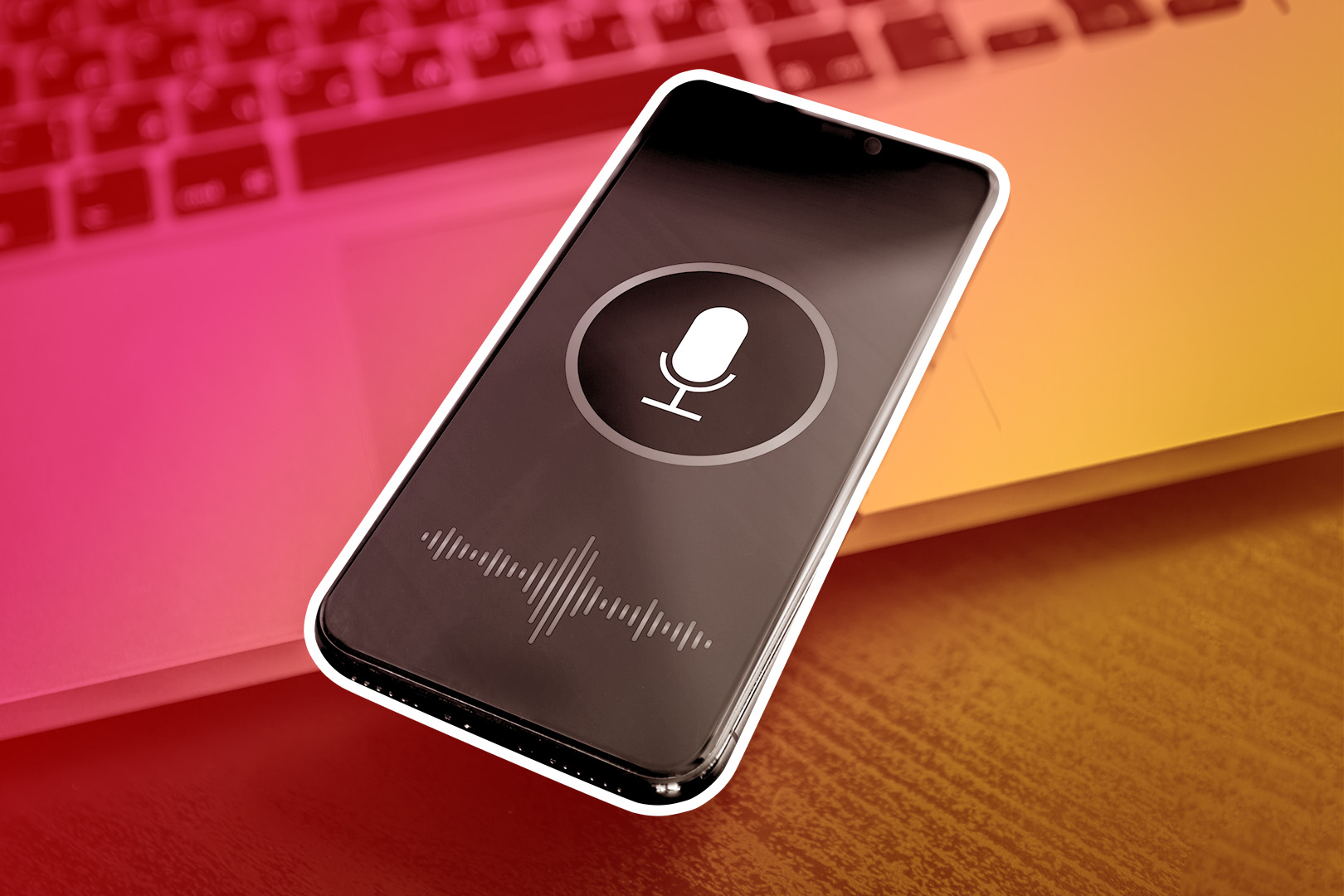What's the one thing every real estate agent wants? More leads!
Fortunately, there are plenty of ways to get them. For example, you can meet with other professionals in your area and agree to send each other referrals.
Or become a social media power user and connect with prospects on sites like Facebook, Instagram, and LinkedIn. Or run Google ads to accomplish the same thing.
Guess what else you could do—cold call prospects on the phone and pitch your services.
I know what you're thinking, "Does cold calling work in real estate?" Absolutely! You have to learn how to do it the right way. Keep reading, and I'll teach you what you need to know.
What is Cold Calling in Real Estate?
Let's be honest: the real estate market in the U.S. is weird right now. Plenty of people want to buy homes, but supply is down, and interest rates have exploded since reaching historic lows in 2021. These factors have made it difficult for both home buyers and sellers.
By cold-calling prospects, you can discover potential clients, build lasting relationships, and prepare to assist them when they're ready to buy or sell. You may even be able to influence their decisions based on your knowledge of the market.
Discover the secrets of effective real estate prospecting right here.
The Proof is in the Numbers: Cold Calling Works in Real Estate
You can sit around, hoping a past client sends you a referral or a red-hot lead stumbles onto your website. But if you really want to take control of your career, start cold-calling prospects.
Here are a few statistics to prove the value of cold calling in real estate:
- 28 percent of cold calls are answered by their intended recipients
- 57.7 percent of real estate agents say that telemarketing is the best lead gen strategy
- Cold calling is the second most effective prospecting method for realtors
- 68 percent of real estate professionals are able to follow up after a cold call successfully
Here's the bottom line: cold calling works in the real estate industry. You just have to learn how to cold call potential leads the right way to find success with this strategy.

What Makes a Cold Call Effective in Real Estate (3 Key Factors)
To succeed with cold calling, you need accurate contact information and a reliable way to track every call you make. A few cold-calling real estate scripts won't hurt, either.
Hey there! Calling all cold calling enthusiasts–our article narrows down the top 8 sales headsets you need to know.
1. Accurate Contact Information
You know what's frustrating? Calling disconnected and/or inaccurate phone numbers. It's a huge waste of time you can never get back.
To avoid this, validate your cold leads to ensure you have the right contact information. If you’re working with commercial real estate, you can use a B2B data provider to discover and update your lead's contact details.
2. A Way to Track Calls and Manage Contacts
There are a bunch of different ways to track calls and manage contacts. You can use an Excel spreadsheet, for example. But if you have the funds, I suggest investing in real estate CRM software, which will make the entire process easier. Plus, many CRMs are equipped with automation, which you can use to help follow up with prospects in the future.
3. Proven Cold Calling Scripts
Every cold caller should have a library of sales scripts at their disposal, each tailored to a different type of client and their current stage in the customer journey. You should also have multiple variations: one to use in conversation and one to use when leaving a voicemail.
We can share a few sales scripts with you. But you need to test them to see which ones are most effective for you. You can then store the winners in your CRM of choice.
How to Create an Effective Real Estate Cold Calling Strategy
Your cold calling strategy will consist of a few different things: the time of day that you make calls, your follow-up frequency, and how reluctance is handled and overcome.
Here are some of my favorite cold-calling tips. Each will help you get past low-value leads and stay focused on those most likely to list with you.
Find the Right Time to Call
When you cold call real estate prospects is extremely important. To succeed, you need to find the best time of day, the best day of the week, and the best frequency between calls.
Times to Call
Research shows that the best time to call new leads is between 4 p.m. and 5 p.m. This is when they're most likely to wind down for the day and be available to talk.
Calling between 11 a.m. and 12 p.m. can be effective, too. Your prospects will probably be handling simple administrative tasks before heading off to lunch.
Avoid calling before 10 a.m. and during lunch breaks. Your prospects won't have the brain space or desire to talk with you at these times.
Days to Call
Generally speaking, Wednesdays and Thursdays are the best days to cold call prospects. Why? Because people have settled into their weekly tasks and are more receptive to calls.
Avoid calling on Mondays, as most people use this day to prepare for the week ahead. Don't call on Fridays, either. The laws of the universe dictate that we all spend our Fridays finishing our weekly responsibilities while pretending we're not daydreaming about the weekend.
Time Periods
The time of year you cold call prospects can affect your success as well. December is a bad time to pursue new listings because nobody wants to buy a new home during the holidays.
Speaking of holidays, try to avoid them. Like, all of them. Three-day weekends have a habit of becoming four-day weekends. Schedule cold calls with this fact in mind.
Target the Right Real Estate Leads
We've talked about the tools you need and the right times to cold call prospects. The truth is, none of it matters if you call bad leads. Use these tips to find quality prospects to contact.
- Expired listings: Start with expired listings. These homeowners listed their homes with a realtor, but let the listings expire—most likely because the home didn’t sell in the agreed-upon time frame. Then the seller decided not to renew their contract. Do they want to work with a new agent? Possibly! When calling expired listings, the homeowner is probably frustrated and disgruntled. So, don’t pitch the benefits of selling a house when you talk to them. Instead, listen to their story and propose a unique strategy you can use to ensure their home sells the second time around.
- Targeted area calling: Also known as circle prospecting, targeted area calling is what happens when you contact prospects who live in popular neighborhoods. Prospects may want to list their homes if their neighbor's home sold quickly and for a good price. Your sales pitch to these people can be super simple: just offer a free valuation on the property. Or, even simpler, propose the idea of selling to get them thinking.
- For Sale By Owner (FSBO): Another great option is calling “For Sale By Owner” properties. Warning: there may be resistance due to cost. But if the property has been on the market for a while, and you think you can sell it quickly or for a higher price, they might be open to working with you. Let’s face it; they don’t have your skills or industry knowledge. A call to offer your expertise may win you the listing.
- For Rent By Owner (FRBO): “For Rent By Owner” properties can infuriate owners—especially if the property hasn't been rented in a while. These homes are often a drain on the owner's cash flow. And the need to solicit applications, show the property, etc., on a regular basis might not be worth the hassle. As an agent, you may be able to contact these folks and convince them to list with you.
- Buying Leads Online: There are quite a few paid lead generation opportunities out there, so choosing the right online leads for real estate provider requires a great provider with good price points and leads that will actually convert into clients.
Set a Follow-up Frequency
If I could only share one cold calling tip with you, it's this: follow-up with prospects. If you don't, you'll fail with this strategy. The question is, how often should you follow up?
A general schedule for timing cold call follow-ups would be:
- Day 1: First call
- Day 3: Follow up
- Day 7: Follow up
- Day: 28: Follow up
- Day 58: Follow up
- (Follow-up continues every 30 days)
If you make contact with a lead and discover that they’re already working with another agent, make a note to reach out again in six months. You never know. They might end that relationship or need help buying a home after selling it to someone else.

Unless a lead tells you to stop calling them, continue to follow up at appropriate intervals. You want to be known and top-of-mind when your lead decides it’s finally time to connect.
Learn to Handle Call Reluctance
Call reluctance doesn’t mean your potential client is reluctant to speak to you. It means you are reluctant to make the call in the first place. Let’s face it: cold calling is a tough outreach strategy. Hearing a perpetual “no” and “I don’t have time” can be really discouraging.
The most common causes of sales call reluctance are fear of rejection, an improper understanding of what you’re offering, poorly qualified leads, and a lack of practice.
How do you know if you're experiencing call reluctance? You'll procrastinate on a regular basis, spend excessive amounts of time preparing for calls, and/or fail to ask for referrals.
So what’s the solution? Steps to overcome call resistance include:
- Reminding yourself that you’re helping your clients solve their pain points
- Knowing that you have a deep knowledge of what you do and how it benefits others
- Properly qualifying your leads and targeting people who will be receptive to your calls
- Logging your calls and prospecting work into a CRM to see your results improve
- Taking a course on cold calling strategies and learning how to find your ideal customer
- Talking to and practicing with other cold calling pros
- Relying on your scripts while you practice, practice, practice
7 Real Estate Cold Calling Scripts that Work
Use the following templates to help you level up your real estate lead generation efforts.
1. The FSBO Script
Wait for confirmation.
Listen to what the homeowner says.
If you're empathetic and use the right tone of voice when the homeowner tells you that they've been trying to sell their home for a while, you may win brownie points.
If you happen to know a buyer who is interested in the house, definitely mention it to the homeowner as well. You can say something simple, like:
If the homeowner expresses interest in your offer, and you feel like you have a good chance at the listing, try to set an appointment by saying:
2. The FRBO Script
Wait for confirmation.
Wait for an answer.
Wait for an answer. Then, crunch the numbers.
If there is an interest expressed, set an appointment.
3. The Circle Prospecting Script
Wait for confirmation.
If there is an interest, move to the appointment script.
4. The Expired Listing Script
Wait for confirmation.
Wait for an answer. If they still want to sell, say:
If there is interest, ask a few more questions:
Wait for an answer. If the homeowner still seems like a good lead, say:
5. The Pre-Foreclosure Script
Wait for confirmation.
Wait for an answer.
6. The Appraisal Follow-Up Script
Wait for an answer. If the homeowner wants to sell, try to book an appointment using the appointment script above. If the homeowner is not interested in selling, say:
Wait for an answer. If the homeowner is interested in an updated appraisal, schedule an appointment. If the homeowner is not interested in an updated appraisal, say:
If the homeowner is interested in the information, give it to them. Then end your call by reminding them to call you if their position changes and they want to sell.
7. The Recent Sales Script
Wait for confirmation.
If the homeowner shows interest, share information about the home you recently sold. This will get them thinking. Then, use the appointment script above to book a meeting.
If the homeowner is not interested, thank them for their time and leave your contact information. That way, they can reach out to you if they change their mind. Then, plan to follow up with them in a suitable amount of time. This will keep you top-of-mind if they decide to sell.
These are a few quick examples of what your script might look like. Use them as a base to help format your own scripts, then customize them to fit your unique personality.
If you’re looking for more advice, check out our top real estate cold-calling scripts.
Alternatives to Cold Calling in Real Estate
Successful cold calling isn’t the only way to reach out to potential clients.
If you can't bear the thought of calling strangers on the phone, these marketing strategies can be used instead. (They can be used to supplement your current cold-calling efforts, too.)
- Texting: SMS platforms allow realtors to easily send, manage, and respond to thousands of text messages. It's a super time-efficient and scalable communication strategy. And because response rates are so high, it can be very effective. Just make sure your leads opt into your messages before you text them. It's the law. And if you really want to succeed with this SMS, use a CRM that offers built-in texting capabilities (like Close!).
- Email marketing: Well-crafted, personalized email campaigns can generate click-through rates of 2.5 percent and up to 3,600 percent ROI. Spice up your emails by incorporating videos, ebooks, and other bits of interesting content. If you can display your expertise in real estate, you'll generate more leads and, eventually, sales.
- Quality referrals: As a real estate agent, there's nothing better than a quality referral. Agents who build a circle of repeat clients who spread the word about their services, creating new repeat clients, tend to be the most successful. To begin building your circle, ask your friends, family, and past clients for referrals.
- Warm calling: This article has been all about cold calling in real estate. But don't forget about warm calling, i.e., calling prospects you've spoken to in the past. These people will naturally trust you more because they already know you. Don't waste this opportunity! Follow up with past prospects to see if they're ready to buy or sell a home. To help, have your CRM send you follow-up reminders so you don't forget to do it.
- Social media: Sites like Facebook, Instagram, and TikTok are amazing resources—if you use them correctly. You need to post more than photos of recent listings. To win with social, share actionable advice that both buyers and sellers can use. Try sharing your thoughts on market trends, too. And tag relevant people/businesses in your posts so their followers can see you and learn about your real estate services.
- In-person events: Get your butt to the store and buy a few appetizers. Or bake a few cookies at home if you're so inclined. Then host an open house to bring in potential clients. If you can't do an open house right now, maybe you can schedule a client appreciation event instead. These events help remind past clients that you're there, which might lead to fresh listings and/or future referrals.

Keep Track of Your Hard Work in Real Estate Cold Calling
A lot of time and effort goes into cold calling. But even with lower success rates than other real estate sales strategies, cold calling produces tremendous returns.
The key is making the most of the time you spend on phone calls. Losing notes, missing reminders, and getting follow-up dates wrong will derail your efforts and result in lost sales.
Fortunately, a quality CRM will make sure these things don't happen. The result? Well-cultivated leads who are excited to use your services to achieve their real estate goals.
When it comes to choosing the best real estate CRM, you can't go wrong with Close.
Our platform makes it easy to track and nurture leads, build automated communication sequences, and generate sales reports. It even includes power and predictive dialers to supercharge your cold-calling efforts and turn you into a productivity ninja.
Sign up for your free 14-day trial of Close. That way, you can use all of our solution's features and decide if it's the right tool for you. I'm confident it will be!







.jpg)





